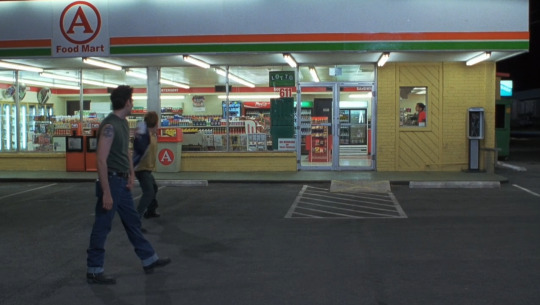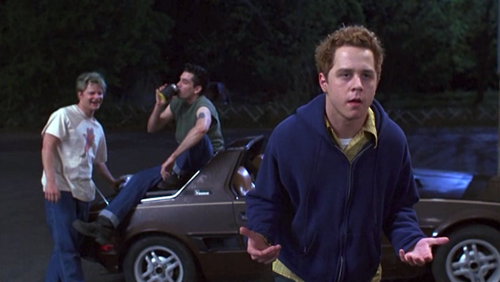No Future: How Richard Linklater and Eric Bogosians SubUrbia Foreshadowed Donald Trumps AmericaBy Russ Fischer
By Yasmina Tawil

Disappointment is powerful and insidious. When an object of desire slips away, particularly something we believe we deserve, the sense of loss can be intense. Its not that we failed to get something; that thing was taken from us. The characters in Eric Bogosians 1994 stage play SubUrbia, and the 1996 film version by Richard Linklater, boil with this disappointmentfor perceived promises unfulfilled, for the stacked odds against fame, success, happiness. The emotion is transmuted into a sense of victimization, and anger.
The venomous spit of SubUrbia wasnt out of place in 1996 as the mainstream accommodated an influx of indie culture in the arts, but the film played like the bitter b-side to Linklaters sunnier Dazed and Confused. What can we glean from a bunch of malcontents, high school friends now in early adulthood, who express feelings of futility and pain plus racism as they drink away their nights in a parking lot? Few of the characters are likable, with many exuding an odious sense of entitlement. This skewed snapshot of the stereotypically disaffected Generation X has largely fallen off the radar, in part due to years of poor home video availability, despite Linklaters growing reputation as a major American filmmaker.
Looking at the film anew two decades years later, SubUrbia howls with middle-American anxiety, the same voices that have been resounding through political rallies for the past six months. This movie is more than a mid-90s time capsule: Its a potent advance warning of the crippling sense of American loss and failure that fueled the political rise of Donald Trump.
Trump courts a voter base made up of a spectrum of Americans dissatisfied with economic status, security, and race relations. The long-since eroded American middle classadults whose early 20s might have looked a lot like characters in SubUrbiais his feeding ground. He galvanizes moderate and conservative voters without college educations who believe theyve been abandoned by a system skewed toward elites, especially in racially tense states.Only a bit of clever editing would be required to make SubUrbia look like a Trump campaign ad.
As a precursor to the abrasive post-rock soundtrack that accompanies most of the film, Linklater opens SubUrbia with the more gently ominous Town Without Pity by Gene Pitney. How can anything survive? in a place like that, Pitney sings. Indeed, as so many citizens we see in fictional Burnfield, Texas turn their anger and frustration outward, rather than devoting energy to fixing their own problems, we watch what little community they have wither away.
Linklater doesnt tame Bogosians characters (the playwright scripted the film), but the directors slowly roving camera reveals sympathetic notes in the small-town group of friends, who hang out near a convenience store drinking and talking and harassing the stores immigrant owners. Linklater amplifies the humanity of the going-nowhere characters without diluting their bile. Several may be unlikable, but they are not at all inscrutable.




